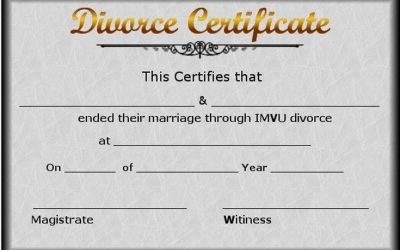
Legal Age of Marriage In Syria: Untangle the Legal Knot
Table of Contents ▼
What if you could avoid all the legal headaches and still have the perfect wedding in Syria?
Syrian marriage rules impose strict religious and legal barriers, making it difficult for couples to marry freely, especially in cases of interfaith marriages. These rules can leave many feeling trapped, with their futures on hold.
In this blog, we’ll guide you through the complexities of these laws and explore international options to help you navigate these challenges.
Table of Contents
Syrian Marriage Rules- An Overview
Syrian marriage rules are a stringent sting of legislation that does not allow individuals to marry freely. In Syria, a court wedding—a civil ceremony without religious rituals—is not legally recognized. This poses significant challenges, especially in a country where around 60-65% of the population are Arabic-speaking Sunni Muslims. Despite being a multi-ethnic and multi-religious society with 12% Christians, marriage laws in Syria are far from uniform.
Marriage legislation in Syria differs among Muslims, Druze, and Christians. Under Personal Status Law, Article 48 (2), if a Muslim woman marries a non-Muslim man, the marriage is deemed legally void. This law highlights the complexities and structures embedded in Syrian marriage rules.
Marriage laws are predominantly governed by religious courts in Syria, and these laws can vary significantly depending on the couple’s religious affiliation. For instance, Article 305, based on the Hanafi school of Islamic law, permits Muslim men to marry non-Muslim women only if they belong to the Kitabia—one of the Abrahamic religions.
Documentation and Requirements for Syrian Couples

Planning a marriage in Syria involves navigating specific rules and requirements. Here’s a simplified guide to help you understand what’s needed:
Marriage Rules in Syria
In Syria, marriages must be conducted by authorized religious personnel. The ceremony takes place at a Shariah court, where your marriage contract will be officially certified and stamped. Note that civil marriages performed abroad are not recognized under Syrian law.
Essential Documents
Individual Extracts: You need to provide individual extracts from the civil registry for the past three years. These documents confirm your personal details and history.
Medical Reports: Both partners must submit a medical report showing that they do not have any genetic disorders that could affect future children.
Statement from Mukhtar and Local Leaders: You will need a declaration from a local leader (Mukhtar) confirming there are no religious or community objections to your marriage, such as age restrictions.
Security Service Approval: Foreign nationals must obtain approval from Syrian security services before proceeding with the marriage.
Military Permission: If one partner is in the military or aged between 18 and 42, they must get permission from military authorities to marry.
Circumstances Under Which a Sharia Judge May Decline Marriage Approval
A Sharia judge could reject the marriage if:
- Some essential documents are missing.
- Legal or religious conflicts exist that prevent the marriage under Syrian law.
- The couple is deemed not ready for marriage, such as when there’s a significant age difference.
- The groom is already married and cannot justify a second marriage.
International Marriage Options for Syrians

If you’re struggling with strict Syrian marriage rules, here’s a straightforward guide to international marriage options that might help:
Georgia
- Legal Framework: Georgia allows interfaith marriages and does not require a visa for Syrians, simplifying the entry process.
- Marriage Process: The paperwork is minimal and marriages can be completed in as little as one day, making it a fast alternative to Syrian regulations.
- Legal Recognition: Marriages in Georgia aren’t automatically recognized in Syria. You will need to follow additional steps to get your marriage acknowledged by Syrian authorities.
Seychelles
- Legal Framework: Seychelles offers a more straightforward marriage process, which is helpful for those affected by Syrian marriage restrictions.
- Marriage Process: You’ll need to provide standard documents like birth certificates and passports. The process is more manageable compared to Syria’s complex rules.
- Legal Recognition: Seychelles issues internationally recognized marriage certificates, but you’ll need to go through extra procedures for your marriage to be recognized under Syrian laws.
Dubai
- Legal Framework: Dubai follows Islamic law, which can be restrictive, especially for interfaith couples. Non-Muslim men must convert to Islam to marry Muslim women, which aligns with Syrian marriage rules.
- Marriage Process: The process in Dubai is strict and must adhere to both local and Syrian marriage rules.
- Legal Recognition: Marriages are internationally recognized in Dubai, but additional legal steps are required for recognition under Syrian rules.
Your Love Story Deserves the Best – Let Easy Wedding Handle the Rest. Start Planning!
How to Register Marriage in Civil Court?
To get your marriage registered in civil court, here’s what you have to do:
Step 1: Gather Documents
Before you can even think about heading to the court under Syrian marriage rules, you’ll need to make sure you have all the necessary documents. This typically includes your identification (like a national ID card or passport), proof of residence, and any documents from previous marriages (such as a divorce decree or death certificate of a former spouse).
Step 2: Submit Application
Once you have all your documents in order, your next move, according to Syrian marriage rules, is to visit the civil court. This is where you’ll submit your marriage application. At the court, you’ll fill out the necessary forms, providing details about you and your partner. The court staff will review your documents to ensure everything is complete and correct under Syrian marriage rules.
Step 3: Schedule and Attend the Marriage Ceremony
After your application is accepted, you’ll need to schedule your marriage ceremony, as required by Syrian marriage rules. The civil court will provide you with available dates. Choose one that works for both you and your partner. On the day of the ceremony, both of you must attend as per Syrian marriage rules.
Step 4: Receive the Official Marriage Certificate
Once the ceremony is complete, the court will issue an official marriage certificate. This certificate is more than just a piece of paper—under Syrian marriage rules, it’s your legal proof of marriage.
Feeling Trapped by Syrian Marriage Laws?

If you’re in love but facing the harsh realities of Syrian marriage rules, you’re not alone. Many couples, just like you, are struggling with laws that seem determined to keep them apart. It’s not just about paperwork—it’s about real people whose futures are put on hold.
At East Wedding, we understand the emotional toll this takes. We’re here to help you find a way forward, so your love story doesn’t have to end because of outdated rules.
Let’s work together to create the wedding you deserve. Start your journey with us today.
FAQs
How are marriages regulated in Syria?
Marriage in Syria is governed by religious, not civil, laws. Muslim men can marry women from other monotheistic religions, but Muslim women are not permitted to marry outside their faith. Any children from marriages that do not follow these rules are not legally recognized.
Can interfaith couples marry in Syria?
Interfaith marriages in Syria are dictated by the religious doctrines of those involved. While some religions may forbid such unions, others may allow them under certain circumstances or take a neutral position.
Is there a civil marriage option in Syria?
No, Syria does not permit civil marriages. All marriages must be conducted according to religious laws, meaning Muslim men can only marry women from monotheistic religions, and Muslim women cannot marry non-Muslim men.


